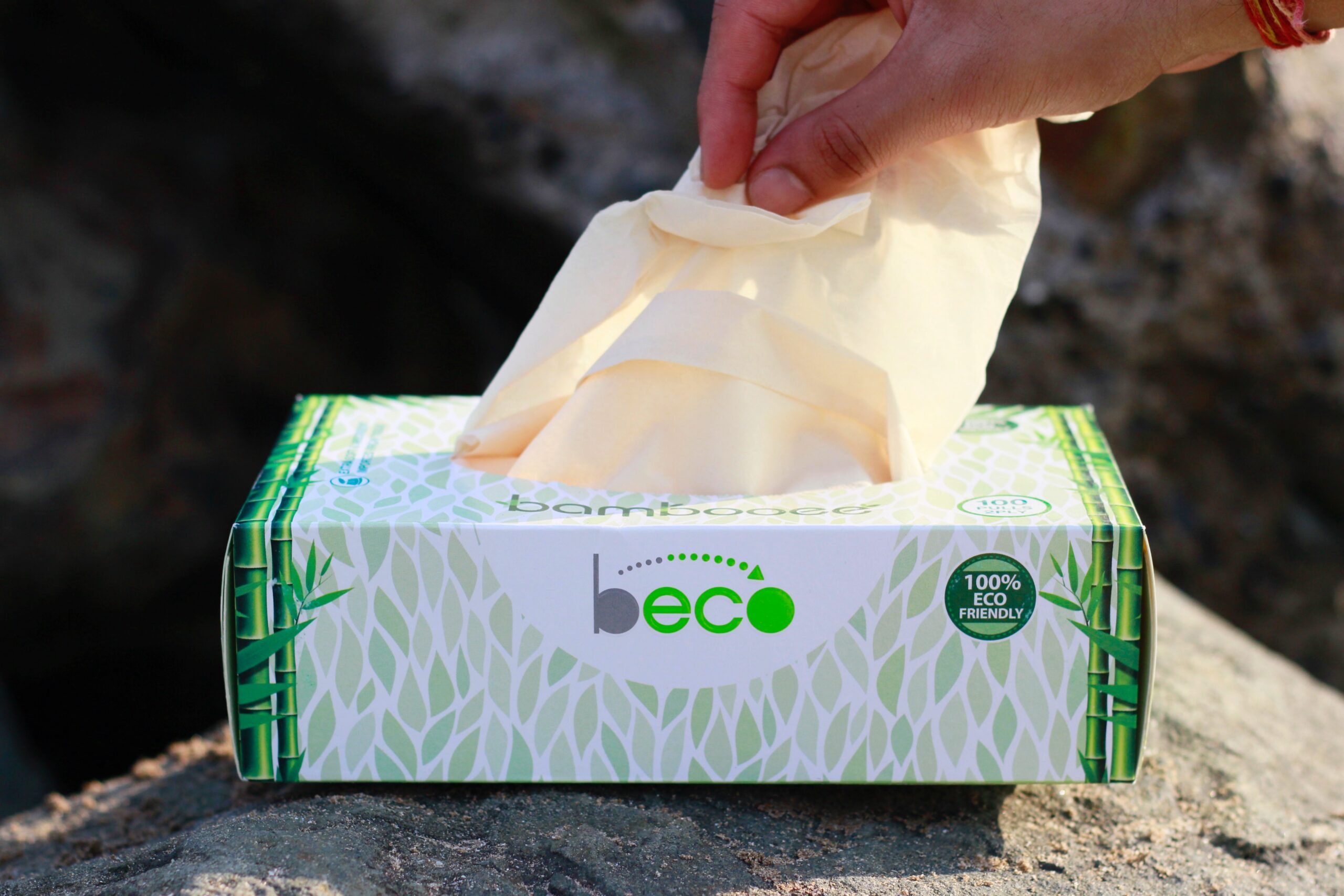Intending to eliminate the usage of plastic from Indian households, Beco, a Mumbai based startup curated a series of sustainable alternative products used in a daily household. These products are 100 per cent made up of plant-based material with lots of care for the environment and zero percent of plastic from production to packaging. However, ironic but it was a plastic wrapper that laid down the foundation of this startup.

One of the founders and a Manufacturing graduate from BITS Pilani, Aditya Ruia discovered a plastic wrapper during one of the beach cleaning drives. He said, “It all started from a small wrapper that we found on one of our clean-up drives, it was that of chocolate discontinued in the 90s. Our purpose at the core has always driven us to make eco-friendly a daily lifestyle and most importantly easily accessible as well as affordable for our customers. There was a gap, and we had to bridge that.”
Realising the toxic effect of plastic and to combat the menace of increasing landfills, Aditya along with Anuj Ruia and Akshay Varma came together to start Beco in 2018 to break the vicious cycle and fight plastic pollution.
This Mumbai based startup offers various household products that are plant-based and eco-friendly. Aditya further said, “It was alarming to see the toxic effect of plastic on the environment as it takes so many years to decompose. The landfills are increasing and one of the major contributors of plastic pollution is the household plastic. Therefore, it is important to bring sustainable alternatives for the same. Therefore, at Beco, we focused to create an eco-friendly alternative to eliminate plastic from the daily household.”

Akshay Varma, a graduate in Material Sciences from IIT Madras who is one of the founders said, “There are players in the global market, but in India, the category we are in is quite unorganised. There was no innovation and we found this category very appealing because these are daily essentials widely used each day and their contribution to plastic pollution is high. Our bamboo and cornstarch products treat this problem as all of them are home and industrial compostable.”

Beco offers a wide range of products such as compostable garbage bags made from corn starch and other plant-based material, bamboo toothbrush, reusable kitchen towel, eco-friendly cotton buds etc. Since its inception, this startup has reached to around two lakh eco-warriors and was able to head off approximately 500 tonnes of plastic.

Beco has its own manufacturing units where all these products are created. One of the widely used raw material, bamboos is sourced from North East India, which in turn has generated employment opportunities there. Anuj Ruia one of the founders also informed that the manufacturing is a completely green process and even their packaging is eco-friendly. He said, ” Our manufacturing is completely green, we don’t use any substance that could harm the environment. The real challenge has always been to be at the right place, at the right time to cater to our customers. The packaging is one of the biggest areas where plastic needs to be eradicated. We use 0% of plastic from production to packaging.”

Not only offering environment-friendly products, but Beco also works at various community-level activities. They regularly conduct beach clean up drive in Mumbai and till now they have conducted 52 drives with more than 3500 participants who volunteered for these drives.
Talking about the challenges faced, Aditya said, “There is a mindset that going eco-friendly is not easy and also an expensive choice. There is a lack of awareness as well and therefore it required a lot of efforts to create awareness about a sustainable lifestyle. We also tried our best to make our product affordable and priced them carefully so that everyone can choose these sustainable alternatives.”
He further informed that they are planning to add a few more products in their catalogue in coming years. He said, “At present, we have eight products but we are planning to increase our catalogue up to 15 to 20 products in the next five to six years. We also hope to make our products more affordable so that everyone can live a sustainable life by opting for better products that are healthy for the earth and its inhabitants.”
Written by: Anvita Srivastava

